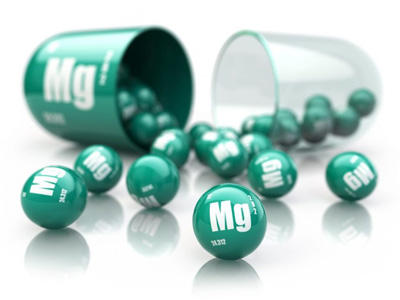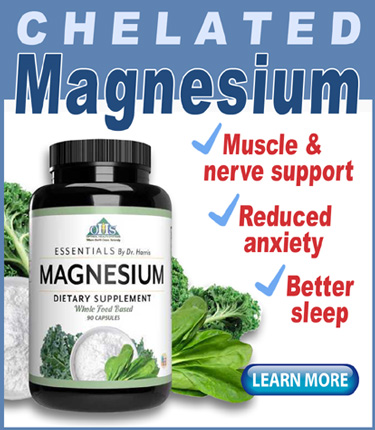A new German survey, sponsored by the German Federal Institute for Risk Assessment in Berlin, found that magnesium was the most consumed individual nutritional supplement in that country.
The finding is interesting since it is a different “top choice” compared to other countries.
According to the findings of the survey, more than half of participants in the survey reported taking a magnesium supplement. Since the survey was conducted randomly, it is considered representative of the population at large.
Use of nutritional supplements in general was also high compared to most other countries, but similar to the U.S. where supplementing is also high. The German researchers found 77% of participants used a supplement during the past year—an increase of almost 20% since the previous survey was conducted.
An important caveat is that the survey did not distinguish between regular or sporadic use, so using supplements just one time during the past 12 months qualified as “taking a supplement.”
Still, the survey demonstrates the lofty importance placed on magnesium in Germany. And it has moved up significantly on the U.S. popularity list too.
Ten years ago magnesium placed ninth or tenth on the supplements list, and in some surveys didn’t even make the top ten. But things changed drastically since 2015. Magnesium soon moved up the list to third place behind Vitamin D and Vitamin C.
And today it ranks second in the U.S.—outpaced by only Vitamin D—on most consumer surveys.
So all this begs the question: What have people learned about magnesium that makes it so valued today?
The master mineral
As research and nutrient awareness has expanded, more people have recognized that magnesium is the “helper nutrient” crucial to overall health. It is essential because it is directly involved in the function of the cell’s main energy molecule and in a vast number of chemical processes.
In fact it is so intertwined with human health that it has long been referred to as the master mineral.
Headaches, muscle spasms, low energy, high blood pressure and sleep issues are all common conditions that are frequently solved by addressing a magnesium deficiency.
Magnesium’s most-recognized functions include:
• Energy production: Magnesium is critical for adenosine triphosphate, or ATP—the molecule that is the primary source of energy for every cell in your body. It cannot be biologically active or usable on its own. ATP must be bound to a magnesium ion to power nearly every energy-requiring cellular process.
These cell processes include muscle contraction, nerve impulse and DNA synthesis. Without magnesium a person literally cannot produce energy, so when a person is magnesium deficient one of the first indications is low energy.
• Enzyme Cofactor: Magnesium acts as a cofactor (a required helper molecule) for around 300 enzymatic reactions in the body, involving almost every metabolic pathway. This includes protein synthesis, DNA and RNA synthesis, creating and repairing genetic material, and breaking down glucose for energy.
• Muscle and nerve function: Magnesium acts as a natural calcium antagonist. While calcium triggers muscle contraction and nerve excitability, magnesium facilitates relaxation. This balance is vital for preventing muscle cramps, spasms, and nervous system over-activity.
• Cardiovascular health: Magnesium helps maintain a normal heart rhythm and promotes vasodilation (relaxation of blood vessels). Both actions aid in blood pressure regulation.
• Bone health: About 50-60% of the body’s magnesium is stored in the bones. It contributes to bone structure and is required to convert Vitamin D into its active form—the form necessary to facilitate calcium absorption.
• Blood sugar regulation: Magnesium improves insulin sensitivity, which is crucial for managing blood glucose levels and protecting against Type 2 diabetes. The high rates of magnesium deficiency is a contributing factor for the high rates of Type 2 diabetes in western countries.
Wide-ranging deficiencies
According to the National Institutes of Health, surveys of people in the United States consistently demonstrate high deficiency rates.
An analysis of data from the National Health and Nutrition Examination Survey of 2013–2016 found that 48% of Americans of all ages ingest less magnesium from food and beverages than their respective recommendations.
There is good news, though: The 48% deficiency rate is considerably lower than the 68% rate found in a 2008 survey.
Clearly the increases in magnesium supplementing are making a difference—but there’s still a way to go.
– – –
Magnesium can be found in the following Optimal Health Systems products:
• Essential Organic Chelated Magnesium
• Daily Nutrient Essential Pak
• Whole Food Vitamin-Mineral
– – –
Sources include: Frontiers in Nutrition, National Institutes of Health.



